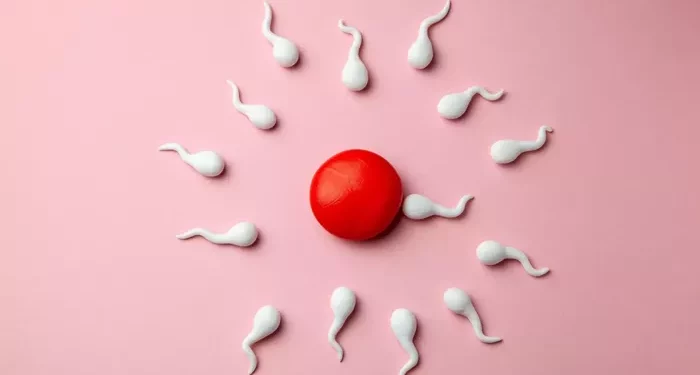Menstrual health is a significant aspect of a woman’s overall well-being and fertility. One question that often arises is whether a light period is indicative of infertility. This article delves into the nuances of menstrual cycles, the implications of light periods, and their potential connection to infertility.
Understanding Menstrual Cycles
The menstrual cycle is a complex, recurring process that prepares the female body for pregnancy. It is governed by intricate hormonal interactions. The typical menstrual cycle lasts approximately 28 days, although it can range from 21 to 35 days in adults. Each cycle has several phases: the menstrual phase, the follicular phase, ovulation, and the luteal phase.
- 1. Menstrual Phase: This is the period of bleeding, lasting from 3 to 7 days. It marks the shedding of the uterine lining from the previous cycle.
- 2. Follicular Phase: This phase begins on the first day of menstruation and continues until ovulation. Hormones stimulate the growth of follicles in the ovaries, each containing an egg.
- 3. Ovulation: Around the middle of the cycle, a mature egg is released from the ovary. This phase is crucial for conception.
- 4. Luteal Phase: After ovulation, the body prepares for a potential pregnancy. If the egg is not fertilized, the luteal phase ends with the onset of menstruation.
What Constitutes a Light Period?
- – A light period, also known as hypomenorrhea, refers to menstrual bleeding that is shorter in duration or lighter in flow than typical. There is no strict medical definition, but generally, a light period might involve:
- – Fewer days of bleeding (less than 2 days).
- – Reduced blood volume (less than 30 milliliters).
- – Light spotting instead of a full flow.
Causes of Light Periods
Several factors can contribute to light periods. These include lifestyle factors, hormonal imbalances, medical conditions, and other influences.
- 1. Hormonal Imbalances: Hormones such as estrogen and progesterone regulate the menstrual cycle. Any imbalance can affect the flow and duration of periods. Conditions like polycystic ovary syndrome (PCOS) and thyroid disorders often disrupt hormonal balance, leading to light periods.
- 2. Contraceptives: Hormonal birth control methods, including pills, patches, and intrauterine devices (IUDs), can alter menstrual flow. They often lead to lighter and shorter periods as they thin the uterine lining.
- 3. Stress and Lifestyle: High stress levels, significant weight loss or gain, excessive exercise, and poor nutrition can impact menstrual cycles. These factors can affect the hypothalamus, which regulates hormone production.
- 4. Age: Adolescents and perimenopausal women frequently experience irregular and light periods. Hormonal fluctuations during these life stages are common.
- 5. Medical Conditions: Conditions like Asherman’s syndrome (scar tissue in the uterus), cervical stenosis (narrowing of the cervix), and certain chronic illnesses can result in light periods.
- 6. Pregnancy and Breastfeeding: Early pregnancy might cause light spotting, often mistaken for a period. Breastfeeding women often experience lighter or missed periods due to hormonal changes.
Light Periods and Fertility
The relationship between light periods and fertility is complex. Light periods do not necessarily mean infertility, but they can be a symptom of underlying conditions that may affect fertility.
- 1. Ovulation and Light Periods: Ovulation is critical for conception. Light periods might indicate that ovulation is not occurring regularly. Anovulation (lack of ovulation) can be a cause of infertility. However, some women with light periods ovulate normally.
- 2. Uterine Lining: A healthy uterine lining is crucial for implantation of a fertilized egg. Hormonal imbalances or conditions like Asherman’s syndrome can result in a thin uterine lining, which may be insufficient for implantation, thus affecting fertility.
- 3. Hormonal Disorders: Conditions like PCOS and thyroid disorders that cause light periods also frequently cause infertility. PCOS, for example, is associated with irregular ovulation and anovulation, both of which can hinder conception.
- 4. Age-Related Factors: Women approaching menopause often experience lighter periods due to declining ovarian function. This natural decrease in fertility is age-related rather than directly caused by light periods.
Diagnosing the Cause of Light Periods
If you are experiencing light periods and are concerned about fertility, it’s essential to consult a healthcare provider. A thorough evaluation can help identify the cause and guide appropriate treatment. The diagnostic process typically involves:
- 1. Medical History and Physical Examination: Your doctor will ask about your menstrual history, lifestyle, and any symptoms you may be experiencing. A physical examination can provide additional clues.
- 2. Hormonal Testing: Blood tests can measure levels of key hormones such as estrogen, progesterone, thyroid hormones, and others to identify imbalances.
- 3. Ultrasound: Pelvic ultrasound can visualize the ovaries and uterus, helping to identify conditions like PCOS, uterine abnormalities, or ovarian cysts.
- 4. Endometrial Biopsy: In some cases, a sample of the uterine lining may be taken to evaluate its health and thickness.
- 5. Hysteroscopy: This procedure allows the doctor to look inside the uterus with a thin, lighted instrument. It can help diagnose issues like Asherman’s syndrome.
Treatment Options
Treatment for light periods depends on the underlying cause. Here are some common approaches:
- 1. Hormonal Therapy: Hormonal imbalances can often be treated with medications. Birth control pills, hormone replacement therapy, or medications like clomiphene can help regulate cycles and induce ovulation.
- 2. Lifestyle Modifications: Addressing stress, improving diet, achieving a healthy weight, and reducing excessive exercise can help normalize menstrual cycles.
- 3. Surgery: For conditions like Asherman’s syndrome or uterine fibroids, surgical intervention may be necessary to restore normal menstrual function.
- 4. Treating Underlying Conditions: Managing chronic illnesses, thyroid disorders, or PCOS with appropriate medications and lifestyle changes can improve menstrual health and fertility.
Light Periods: When to Seek Help
It’s important to know when to seek medical advice if you experience light periods. Here are some scenarios where professional evaluation is warranted:
- 1. Persistent Light Periods: If you consistently have light periods for several cycles, it may indicate an underlying issue that needs attention.
- 2. Irregular Periods: Significant changes in the pattern, timing, or flow of your periods should be evaluated.
- 3. Infertility Concerns: If you have been trying to conceive for a year or more without success (or six months if you are over 35), it’s time to seek help.
- 4. Other Symptoms: Symptoms like severe pelvic pain, unusual discharge, or significant changes in menstrual blood color or consistency should be addressed promptly.
Psychological Impact
Menstrual irregularities, including light periods, can have a psychological impact. The uncertainty and anxiety related to fertility can be stressful. It’s important to acknowledge these feelings and seek support when needed. Counseling or support groups can provide valuable emotional support during this time.
Conclusion
A light period does not necessarily mean infertility, but it can be a sign of underlying conditions that affect fertility. Understanding the causes of light periods and their potential impact on reproductive health is crucial. If you have concerns about your menstrual health or fertility, consulting a healthcare provider for a thorough evaluation and appropriate treatment is essential.
Maintaining a healthy lifestyle, managing stress, and seeking timely medical advice can improve your menstrual health and enhance your chances of conception. Remember, each woman’s body is unique, and what is normal for one may not be for another. Prioritize your health, stay informed, and take proactive steps toward understanding and managing your menstrual and reproductive health.
Related Links:
Female Infertility: The Common Causes You Need to Know
Secondary Infertility in Women: Causes and Path to Conception



























